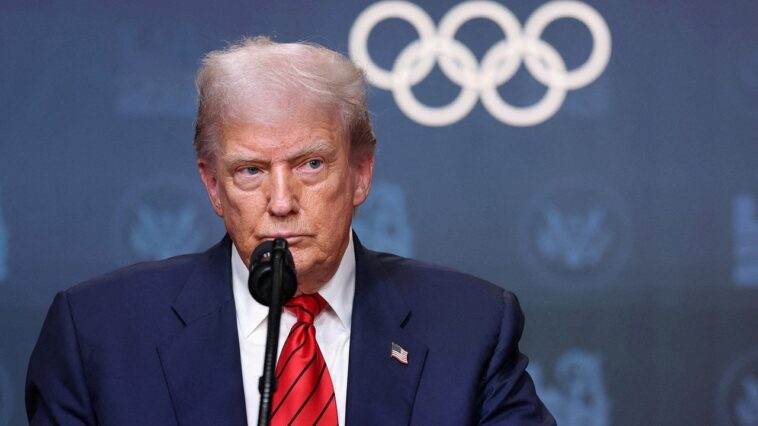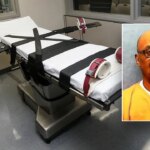President Trump reveals 2028 Olympics Task Force
White House deputy press secretary Anna Kelly joins ‘Fox & Friends First’ to discuss President Donald Trump announcing a task force for organizing logistics for the 2028 Summer Olympics in Los Angeles.
NEWYou can now listen to Fox News articles!
The committee behind the 2028 Los Angeles Olympics added former speaker of the House Kevin McCarthy and President Donald Trump’s former chief of staff Reince Priebus to its board of directors, as seen on the LA 28 website.
The additions come as Trump has taken a heavier hand with his involvement in the upcoming LA Olympics in recent months.
Trump signed an executive order in August that created a White House Olympics task force for security purposes and other issues. One of the task force’s top priorities will be coordinating federal, state and local government work on transportation. They will also “streamline visa processing and credentialing for foreign athletes, coaches, officials, and media.”
CLICK HERE FOR MORE SPORTS COVERAGE ON FOXNEWS.COM
Trump has also directly influenced the U.S. Olympic & Paralympic Committee’s policy on gender eligibility in women’s sports. In July, the USOPC amended its athlete safety policy to suggest compliance with Trump’s “Keeping Men Out of Women’s Sports” executive order.
“USOPC will continue to collaborate with various stakeholders with oversight responsibilities… to ensure that women have a fair and safe competition environment consistent with Executive Order 14201,” the policy reads.
The president said, when announcing the task force in August, that there will be a “very strong form of testing” in response to a question about mandatory genetic testing for women’s sports.
NEW OLYMPICS CHIEF CALLS FOR ‘PROTECTING’ WOMEN’S CATEGORY AMID GLOBAL TRANS ATHLETE WAVE
At the USOPC Media Summit in October, Chief Medical Officer Dr. Jonathan Finnoff said that the SRY gene tests being used by World Athletics and World Boxing are “not common” in the U.S., but suggested the USOPC is currently exploring options to employ sex testing options for its own teams.
“It’s not necessarily very common to get this specific test in the United States, so our goal in that was helping to identify labs and options for the athletes to be able to get that testing. And based on that experience, and knowing that some other international federations will likely be following suit, figuring out how we can make this seamless process … is where we are now,” Finnof said. “But we have a good process in place.”
CLICK HERE TO GET THE FOX NEWS APP
Meanwhile, USOPC Board Chair Gene Sykes called Trump’s executive order to prevent males in women’s sports “consistent with international trend.”
“And fortunately, the executive order that is designed to protect women’s sports in the United States is very consistent with the trend internationally,” Sykes said. “The expectation is that this is, this is where world sport, international sport, will go.”
Follow Fox News Digital’s sports coverage on X, and subscribe to the Fox News Sports Huddle newsletter.
Jackson Thompson is a sports reporter for Fox News Digital covering critical political and cultural issues in sports, with an investigative lens. Jackson’s reporting has been cited in federal government actions related to the enforcement of Title IX, and in legacy media outlets including The New York Times, The Los Angeles Times, The Philadelphia Inquirer, The Associated Press and ESPN.com.



